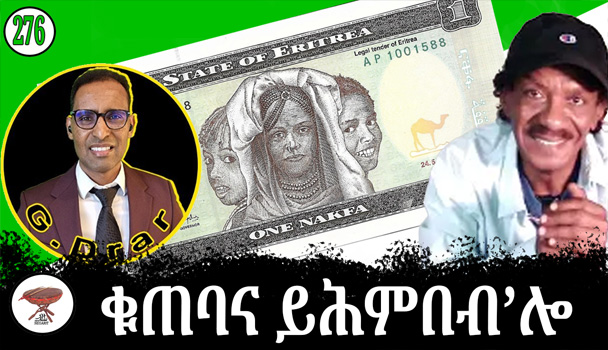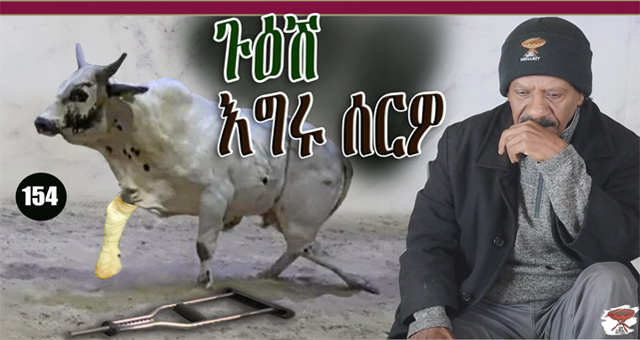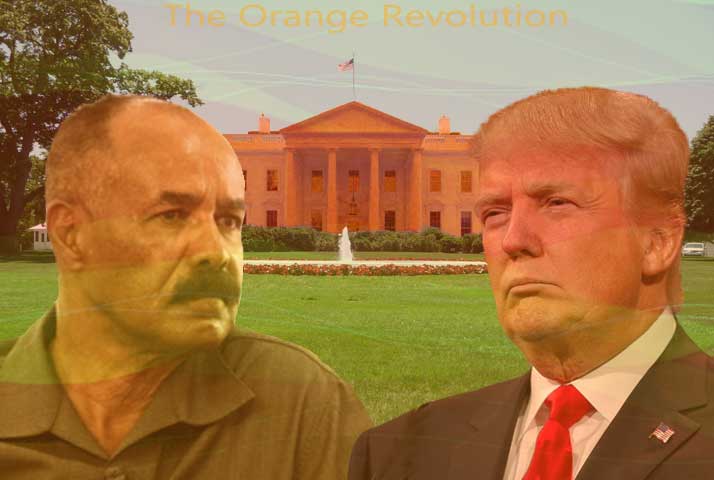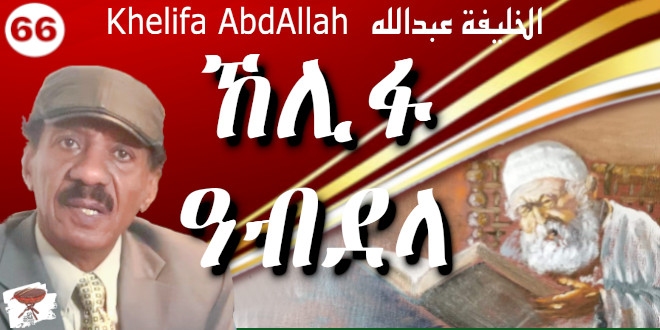Is Eritrea’s Economy Vibrant?
Gerghis Drar’s is an Eritrean who presents basic financial tutorials—stock market, retail consumer financing, investments, debts, and politics. That caught my attention and I have been following him for a while.
A few months ago, when the PFDJ propaganda started to proliferate aggressively, I thought it was time to confront the misleading propaganda with facts—a counterargument was needed. I took the initiative and called several people in the “media,” including Gerghis.
I didn’t have to introduce myself when I discovered he knew me; he reminded me that we met in a seminar in Bologna, Italy, where I was invited as a speaker. I think I was told he was a relatively new arrival from Eritrea.
Last week I saw a tweet by Gerghis, where he commented:
“#Eritrea is one of only three nations in #Africa that has never taken a dime from the #IMF. As the Bible says, “The borrower is a slave to the lender.” Eritrea has not only avoided loans but has also survived and thrived despite crippling sanctions from the UN, USA, and EU. It continues to stand tall in one of the most volatile regions in the world. This country is full of untold stories. What would you add to this narrative?”
Given my perceptions about Gerghis’ knowledge of financing and debts, I was surprised to find out it was shallow.
The Major Points
Quoting divine books to support a financial viewpoint is unprofessional; finance is not in the realm of metaphysics, but math and science; it must depend on facts. Gerghis should have done research and read views that were presented for decades. Disappointingly, he repeated the government’s propaganda and ignored the vast arguments and content written by Eritreans on the subject. Some can be qualified as primary sources and ignoring them makes any argument half-backed.
Gerghis quotes the bible to support his argument that borrowing is bad. But Marx condemned, not only borrowing, but the entire capitalist system, and he was not a fan of divine books. In modern parlance, the bible quote could also lead us to conclude that employers are enslavers of their employees because their livelihood depends on them, in a way.
The financial system that governs the world functions on loan, which is a means of securing financing to create wealth.
It’s ironic that someone who teaches investment, which is inseparable from loans and interest (charged by the wealthy “enslavers”! ), would campaign against loans. It could demolish the credibility and merit of his educational business.
Furthermore, he didn’t present evidence that the Eritrean economy is prospering or how it survived the economic pressure. However, it’s a fact that Eritreans are not struggling just to survive but to live a dignified life. In this case, the phrase “it’s standing tall” depicts pride that cannot be measured objectively. It’s a political statement, not an economic one. Is Eritrea standing tall economically?
Then he asks, “What would you add to the narrative [of the tweet]?” Unfortunately, it’s not possible to spin or imbue the awful economic reality in Eritrea with a favorable narrative.
Gerghis’ asserts that “Eritrea is one of only three nations that has not borrowed a dime”! However, economic health is measured by many factors; borrowing and investing the loan productively is an important factor.
Non-existing loans?
IMF and World Bank are major institutions, and anything owed to them is external debt. It’s helpful to remember that Eritrea’s external debts are a whopping $776 million as per the 2022 report (Eritrea doesn’t publish regular statistics or budgets). Can one claim Eritrea has not borrowed a dime? Importantly, would Gerghis be helping his “students” and audience by discouraging them from borrowing, giving up their credit cards, canceling their mortgages, business loans, etc.? The fact is that Eritrea always took loans, and it’s more than “a dime”!
Qatar has taken Eritrea to court for failing to pay the $250,000,000 loan it borrowed; the court ruled in favor of Qatar.
China loaned Eritrea $98 million to rehabilitate the Hergigo power plant in 1993.
Eritrea has an internal loan owed to depositors after the ill-designed bank policy it enacted. Depositors can withdraw only Nakfa 5,000/month. For instance, if a depositor has a balance of one million Nakfa, it will take him 200 months (almost 17 years) to withdraw it all, provided the bank honors the title to the deposit. Check withdrawals only shift the balance from one account to another; they don’t affect the common citizen in a cash society. Also, the same withdrawal limit applies to the checks that cannot be fully cashed.
Eritreans cannot invest with confidence inside Eritrea (except those with close party relations or the benefit of nepotism); that kind of business environment doesn’t encourage internal investment, let alone external investment. Add to that the unclear policies, the absence of courts, etc. Thus, the economy is not at risk of collapsing; it has already collapsed.
It’s hard to understand if the PFDJ despises the loans or the loaners. Maybe it’s the despise of the conditions the wealthy loaners put in place, regardless of whether it’s US, AU, or other institutions!
The stock market that Gerghis promotes is mostly owned by wealthy Westerners, who also happen to be the major lenders.
However, no one in his right mind would argue that financial institutions are benign lenders. The stakeholders (the West) have leverage, and it is common that they sway the institutions’ decisions. But the West is composed of the major donors in times of crisis! It’s worth remembering that occasionally, lenders invoke debt forgiveness mechanisms to deal with distressed countries.
There is a saying (not the Bible): either the loner or the borrower will die (wey zeleqeHe ymewt wey z’teleqeHe ymewt), which means that at times loans become uncollectible. The financiers have a derogatory version of that, “giving out good money to save bad money.” Banks loan more money to borrowers who cannot meet their obligation to save them from bankruptcy; they would rather help and avoid the borrower’s business from collapsing so that they don’t lose the loan altogether.
Weaponizing Information
Information should not be weaponized to advance one’s political views or ideology. Sadly, many do that because those who know do not challenge misleading or misrepresented information. Maybe they are lazy, inept, do not care, or don’t know. My beef is with those economists, bankers, financiers, and businesspeople who know the topic yet choose to remain silent.
That requires deep thinking, and that is what I am trying to encourage.
As many people know, the Internet is infested with noise, mainly from PFDJ operatives who are too emotional and do not understand the damages they are inflicting on Eritrea and its economy. And those who should challenge and correct them are recoiling and running to defensive corners. The PFDJ and its supporters do not have a culture of mature debating; they are all about emotions, jingoism, and bravados. They prefer mediocre topics to discuss; they are all emotionally driven. But they are good and quick at shooting from the hip. As obedient soldiers, they repeat and act on what they heard at the most recent “mekhete” seminar.
Debt Forgiveness
Countries have credit scores and credit worthiness, just like personal credits. If you fail to repay loans, your credit scores will be low. Eritrea has a low credit score. Bravado aside, since the 1990s, Eritrea has lost a lot of goodwill.
In the beginning of the 1990s (Clinton presidency), Eritrea and Ethiopia were the darlings of the West, a time when they were called Renaissance nations, the African Tigers (like the Southeast Asia Tigers). Eritrea squandered that fame due to wars and ill governance.
It also destroyed the bridges it had with many countries and that led to all the sanctions and being treated like a pariah state.
So, which country do you think would be willing to lend it or invest in Eritrea?
Finally, the reality: in 2022, the last year for which reports are available, Eritrea’s external debt stood at $715,304,700. Thus, that would mean every Eritrean, including the diaspora, asylum seekers, and refugees, child and adult alike, owes the debtors about $204.00 each. But since there are no bills with late fees delivered to our residences and no one is coming to collect the debt, we do not think they are owed. It’s all loaded on the backs of Eritreans in Eritrea.
Common Eritrean citizens in Eritrea do not know the details of the debt but feel its impact because their backs are burdened by the increase in the prices of goods and services.
Next time someone in Eritrea complains about financial hardships and price hikes, remember at least one of the causes; it’s what I tried to explain above. Now cough that $204 out!





Awate Forum